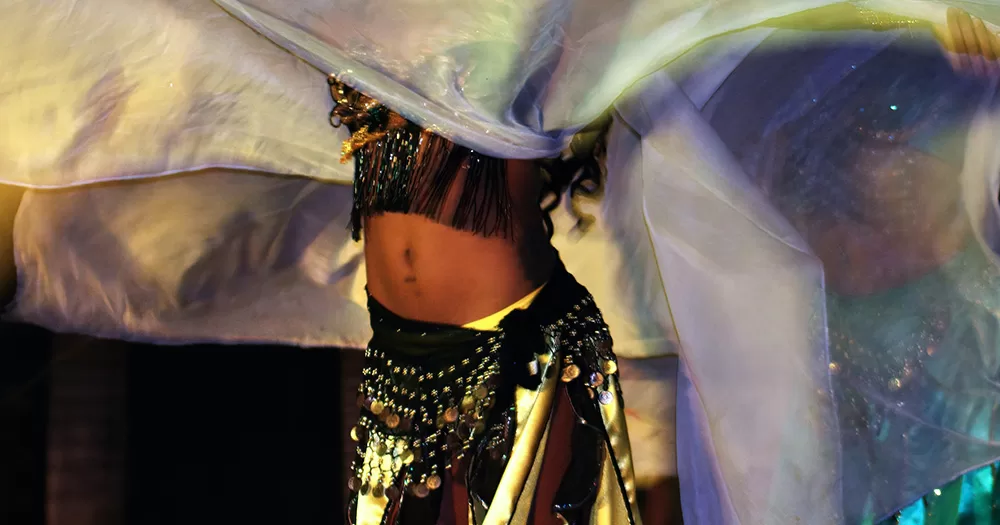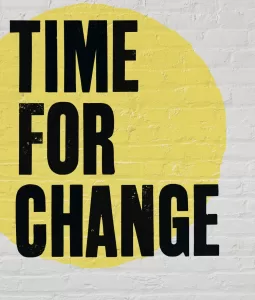“Ever since I can remember, I have been into arts and dancing. Dancing connects to my inner self” – so explained Sushant Suresh Singh to Pradeep Mahadeshwar. Sushant went on to share his experience of acceptance and struggle in a fascinating story of finding your home in an art form people think you have no part in – belly dancing.
“In Mumbai, I was keenly learning Kathak – one of the eight primary forms of Indian classical dance. To practice Kathak, the dancer must wear ghungroos – a musical anklet of multiple small metallic bells strung together to tie to the feet to create a rhythmic sound. But my parents told me I couldn’t wear ghungroos in their house. It is not a man’s thing to do.”
Sushant Suresh Singh (he/him) is originally from India and has lived in Dublin since January 2020. He moved to Dublin for his studies. He graduated MBA in finance from the Dublin Business School and now works in a multinational company. Like many other Indian queer people, he chose Ireland for both his studies and to live life in freedom. Positive stories of legalising same-sex marriage in Ireland have encouraged many queer Asians to move here. Though Dublin’s queer spaces can be unwelcoming for Asian queers, Sushant found belonging in the belly dancing community.
Like many other Indian queer people, he chose to migrate as he felt his future was blurry.
“I was raised in the big city of Mumbai, which is greatly more open-minded than other parts of India. My family is originally from Lucknow, one of the oldest cities in Northern India, famous for poetry, music and dance. At home, we are a typical Indian family – everyone needs to know about everyone else’s life, and there is no privacy or an opportunity to be different. It was routine for me to face uncomfortable questions and comments about my marriage prospects. Quite often, some relatives tried to introduce me to single women as a marriage proposal. It was emotionally draining.
“I came out to my close family and they accepted me after a long emotional struggle. Now my parents have become more supportive, but the problem was with our relatives and my friends. I always wanted to come out to everyone in my friend circle, but as soon as I came out as gay, they distanced themselves from me.
“I decided to leave India to get away from the constant hopelessness. A person can not escape daily interference in their private lives and severe stress, anxiety and self-doubt. It significantly affected my work and life balance too. There is a misconception that since Section 377 was removed and homosexuality was no longer a crime, one could live freely with their sexuality. But in reality, we need another 50 years to erase the post-colonial stigma attached to sexual orientations.”
The coming out stories of Indian gay men repeatedly show a tightly woven source of homophobia from family, the toxic influence of religious beliefs and endless loneliness. Sushant’s experience has all of those layers.
“My coming out was an accident. I had a profile on a famous gay dating portal in India called Planet Romeo. One day my elder sister accidentally saw my gay dating profile while searching for a food recipe on my laptop. She confronted me, and I took that opportunity to tell her my sexual orientation; surprisingly, she was cool. Excitedly, she told our elder brother my secret that evening. I remember he said that he doubted my sexuality a long ago. My sister did not stop there; she told my mother.”
Most Indian families have an orthodox mindset about gender roles and sexuality. “When my mother realised my sexuality wasn’t a joke or a phase, she cried continuously for days; she blamed herself for my failed upbringing.”
At that time, Sushant was in college and working part-time. His mother put him in a house arrest-like situation; he was no longer allowed to go out to attend college or meet friends. She asked him to complete his studies through a correspondence course.
“She was confused and scared about my sexuality. It was the most depressing time of my life. I tried to be patient and sit quietly in my room. ‘Fixing’ my sexuality became her main priority; she took me to a psychiatrist and many temples and priests. She took me everywhere possible to ‘cure’ my gayness.”
In the Western world, we fight against conversion therapy. In India, there is no specific institution that offers conversion therapy. The toxic combination of religion and superstitions has created numerous humiliating ways to “convert” a queer person.
Sushant shared his experiences: “Once, my father contacted a black magic expert Hindu priest from Nepal. That priest suggested my parents perform a symbolic ceremony of my death to destroy my identity as a gay person and incarnate me again as a new straight man. That shook my mother; she disagreed with seeing me dead, even symbolically; I cried a lot when my father invited the priest home. My father offered flower garlands to my photo frame as if I was dead.
“That made my mother outraged, and she stopped the rituals. She took me into the room and said, ‘Do whatever you want, whatever feels right for you. I accept you the way you are. But give me some more time. Let me research and understand more about your sexuality and see how I can help you.’ She is intelligent; she couldn’t see me as an emotionally damaged, unhappy person who had forgotten to smile. Those eight months were the most challenging time of my life.”
In 2019, Sushant’s friend died by suicide, which made his mother change entirely.
“Mother and I went to his home that night. We saw my friend’s body and his shocked parents. He was an intelligent lawyer. He was very handsome. Unfortunately, he didn’t get a chance to gather the courage to tell his parents about his sexuality. They constantly forced him to marry a woman, and eventually, he gave up on the constant pressure.”
That night Sushant’s mother held his hand and told him to leave the country.
“’You won’t be able to live with freedom in this country. As a mother, I can change myself, but I cannot change society’s view of people like you. I cannot make my husband accept you the way you want to be accepted. Go somewhere where your sexuality won’t be an issue.’ I sense it was a slow start to our mother-and-son relationship healing.”
Since moving to Dublin, Sushant is pursuing his dream of becoming a dancer.
“I have loved dancing since my childhood. Bollywood songs have always influenced me. During my school days, whenever I was left alone at home, I never missed the opportunity to wear my sister’s clothes and makeup and dance in front of the mirror. It was my fun secret.
“In Dublin, during the lockdown, I was studying from home, cooking, eating, and sleeping; it was a time when I felt the urge to go back to dancing. I look at dance differently; it is healing and connecting to the self.
“Belly dancing has helped me to connect with the broader dancing community in Dublin. I connected with my belly dancing mentor, Cida, online at Yalla Belly Dance Dublin and began to practice belly dancing through online training for the first few months. It is such a lovely community; I feel appreciated. It is challenging for outsiders to develop friendships in Dublin’s gay community, but the belly dancing community welcomed me with open arms.”
Homophobia experienced within the ethnic communities of gay men of colour can blend with exclusion from the local gay community to create a toxic formula of social isolation, alienation and psychological vulnerability that would challenge even the most confident individual. Sushant lived in a house share with straight Indian men who often displayed homophobia, but he emerged a winner against all odds.
Sushant performed his first belly dance with his group in the Autumn of 2022. The audience was supportive because they had never seen an Indian man belly dancing on the stage before. Sushant loved the sense of support and friendship he found, “I loved the way audiences encouraged me. Being the first Indian male belly dancer in Ireland is a great honour.”
This article originally appeared in Issue 377 of GCN Magazine.
© 2023 GCN (Gay Community News). All rights reserved.
This article was published in the print edition Issue No. 377 (April 1, 2023). Click here to read it now.
Support GCN
GCN is a free, vital resource for Ireland’s LGBTQ+ community since 1988.
GCN is a trading name of National LGBT Federation CLG, a registered charity - Charity Number: 20034580.
GCN relies on the generous support of the community and allies to sustain the crucial work that we do. Producing GCN is costly, and, in an industry which has been hugely impacted by rising costs, we need your support to help sustain and grow this vital resource.
Supporting GCN for as little as €1.99 per month will help us continue our work as Ireland’s free, independent LGBTQ+ media.

